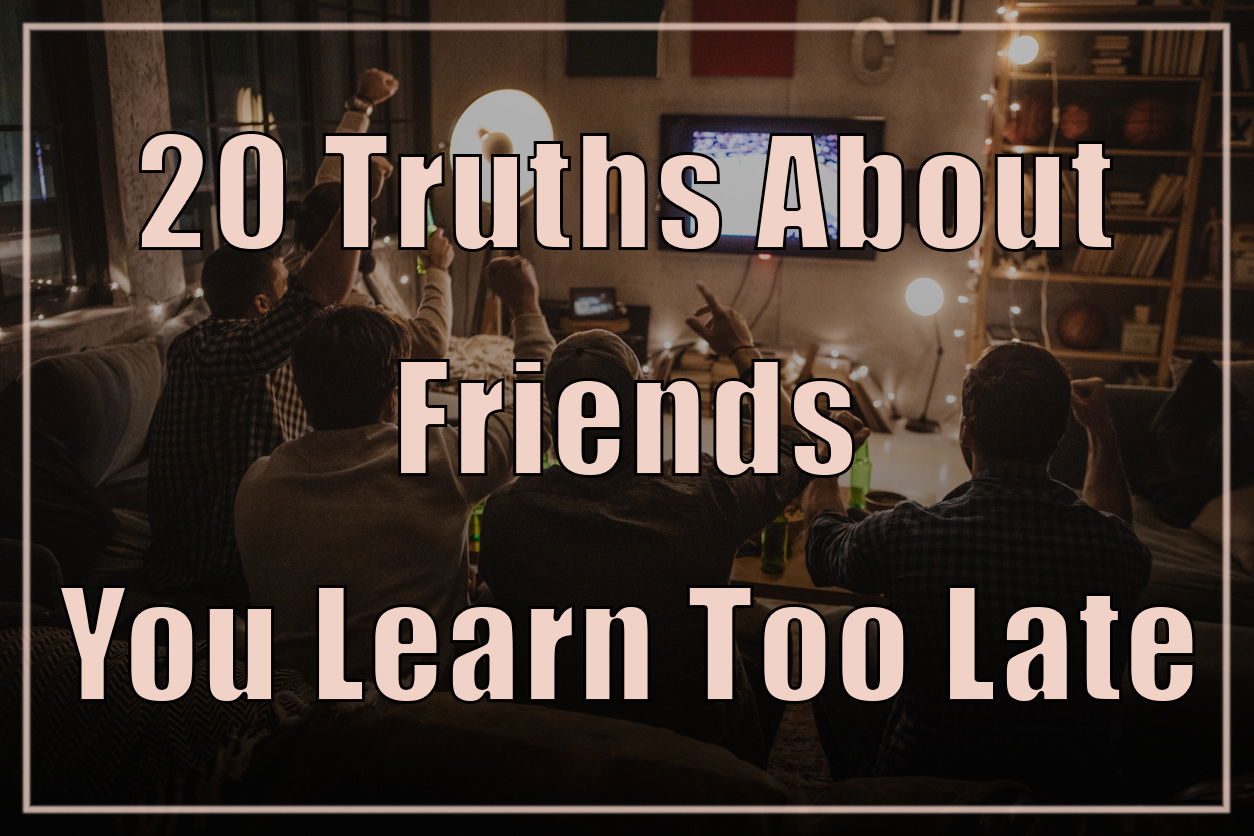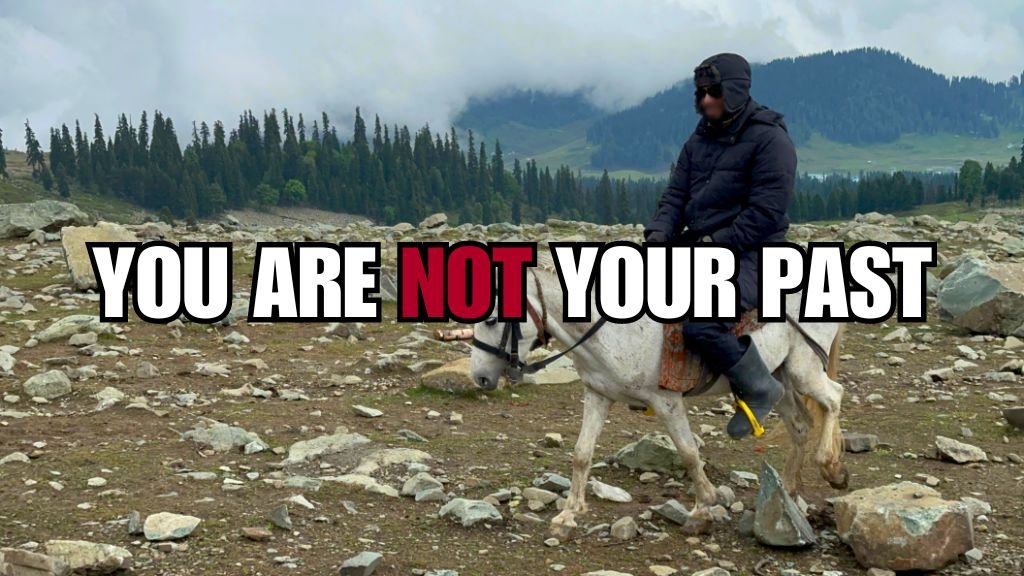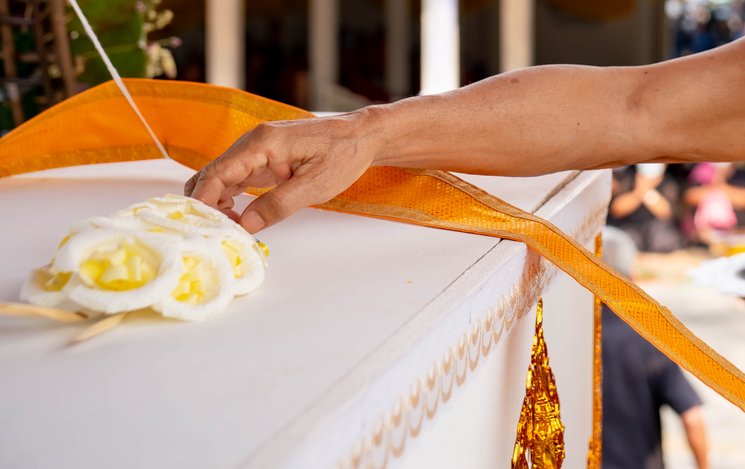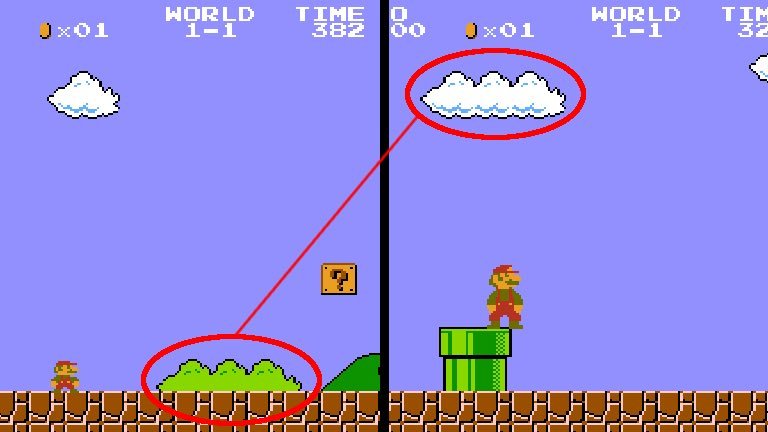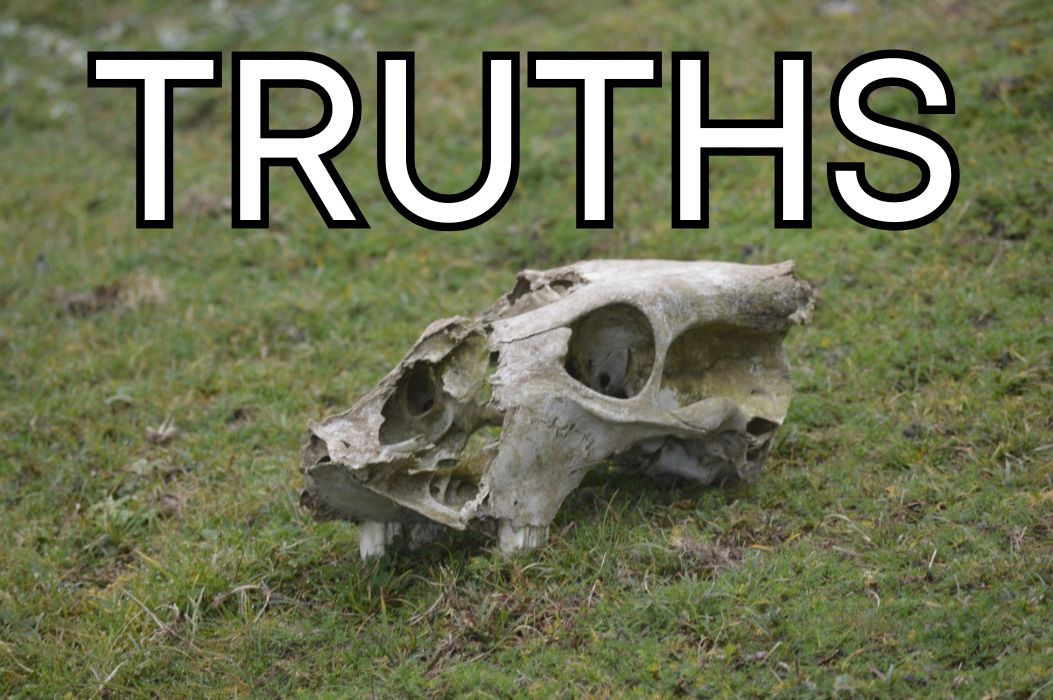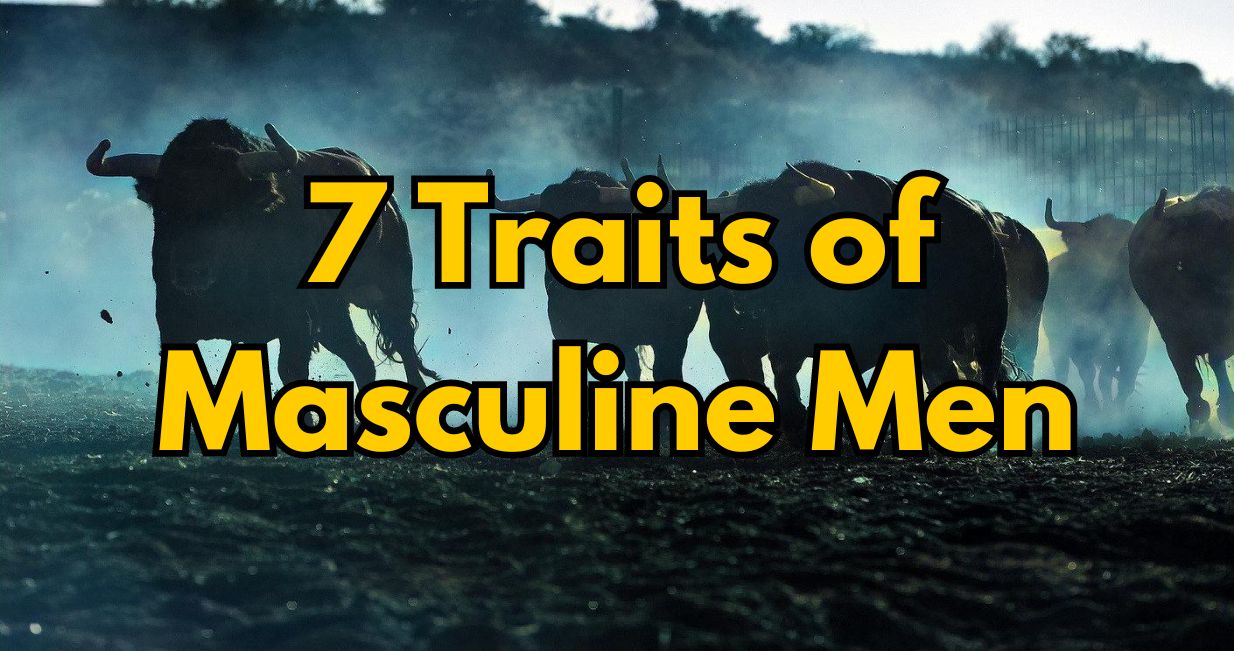Solon was an ancient statesman from Athens who lived over 2500 years ago. There’s an interesting story about him that is full of wisdom and is passed down to us by both Plutarch and Herodotus (the father of History, also known as the father of lies).
The conversation Solon has is a fable supposed to give its reader wisdom and not a true or factual tale.
Note: In this article, “Happiness” is the translation of the ancient Greek word eudaimonia, which does not mean emotion. It means the overall good fortune that a person has in life.
Solon Goes to Lydia
After retiring from public life, Solon decides to travel the ancient Greek world. On one of his travels, he goes to Lydia – the richest kingdom of their age.
Since he is famous for his wisdom, he receives an invitation from Croesus, the king of Lydia to come visit him.
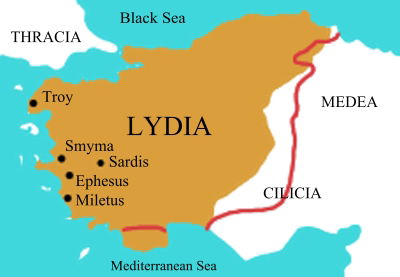
Lydia was an extremely rich kingdom, especially when compared to the city-state of Athens (which was a very modest place back then – this story is from before the existence of the Athenian empire).
The kingdom was so rich that Solon behaved like a small town fisherman who’s never seen the sea before, so when he goes to see the sea, he thinks every successive river is the sea itself – until he sees the real thing.
Solon thought every successive courtier he met was the king himself since they were all so well dressed and wore many precious metals and stones.
Solon Meets Croesus and is Shown Great Treasures
Then at last he was brought to King Croesus himself, who wore the most expensive clothes, most precious stones, and lots of gold – a spectacle of money.
Solon showed no astonishment and made no comments about what he saw.
The king was surprised by this because he was actively trying to impress Solon by his wealth. He wanted Solon to be so impressed that he would tell his countrymen about the riches of Lydia and Croesus.
He was perplexed that Solon showed no amazement at all. So he ordered his staff to show Solon his treasure chambers and all the money, equipment, and precious things he had.
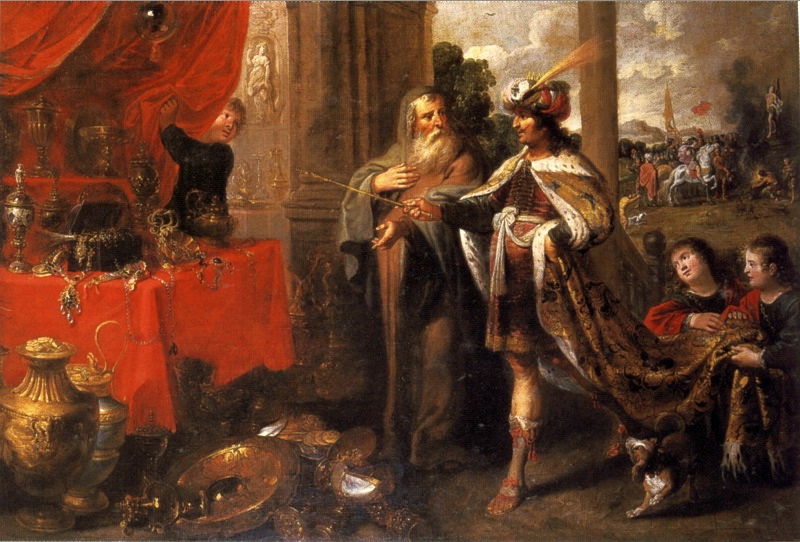
Then Croesus asked Solon if he has ever known a man who was happier than him.
Note: A more accurate translation would be “more fortunate” instead of “happier” but happier is the one commonly used so I’ve gone with it. The word is eudaimonia in Greek which means your overall good fortune in your life. It does not refer to the emotion of joy that the word happy currently means.
Tellus
“Yes”, said Solon, “It is Tellus the Athenian.”
Croesus was amazed at what he heard and replied, “Why do you think Tellus is more fortunate than me?”
Solon replied, “Tellus was from a prosperous city. He had good and noble children. He saw children born to them all and all of these survived. His life was prosperous enough that he didn’t have to ask for anything and his death was glorious as well: when the Athenians were fighting their neighbors, he came to help, defeated the enemy, and died in battle. The Athenians buried him at public expense on the spot where he fell and gave him much honor.”
Croesus thought Solon was a strange man for thinking this Athenian commoner was more fortunate than him, a man with power and lots of money.
Croesus then asked Solon, “Other than Tellus, do you know any man more fortunate than me?” fully expecting to at least win the second prize.
Cleobis and Biton
Solon answered, “Cleobis and Biton. They had enough to live on, and on top of this had great bodily strength. Both had won prizes in the athletic contests. They surpassed all other men in brother love and in affection to their mother.”
He continued: “There was a religious festival, and their mother absolutely had to be taken to the temple by a team of oxen. But their oxen had not come back from the fields in time, so the youths took the yoke upon their own shoulders to reach there in time. They drew the wagon with their mother in it, traveling five miles until they arrived at the temple.”
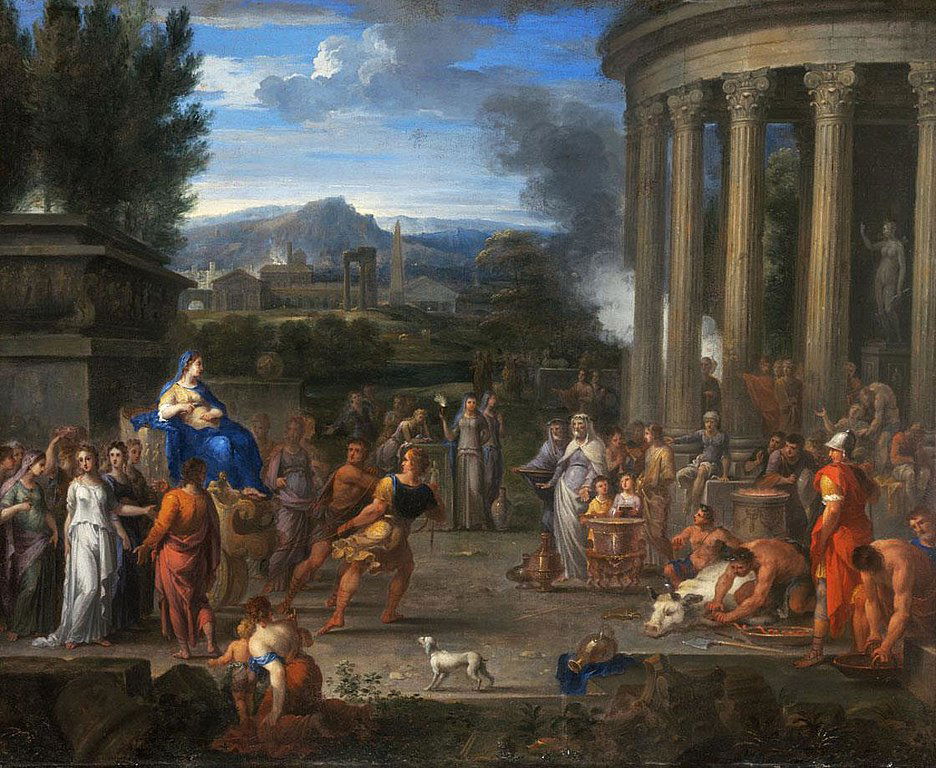
He went even further: “When they had done this and had been seen by the entire gathering, the men stood around the youths and congratulated them on their strength; the women congratulated their mother for having borne such children. She was overjoyed at the feat and at the praise, so she stood before the image and prayed that the goddess might grant the best thing for man to her children who had given great honor to the goddess.”
“After this prayer they prayed and feasted. The youths then lay down in the temple and went to sleep and never rose again – the goddess had given them a painless death while at the top of their prime. The city made and dedicated statues of them as being the best of men.”
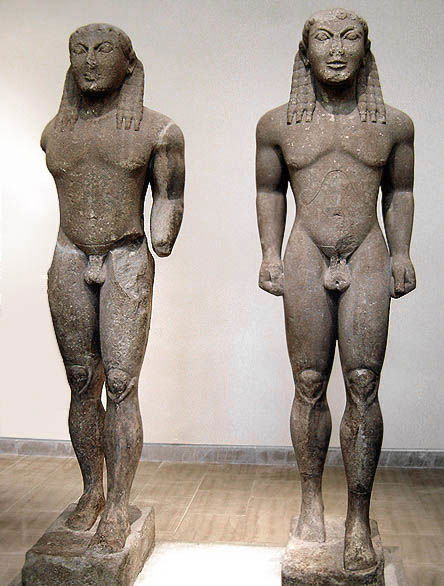
The Wisdom of Solon
Croesus was angered and asked Solon – “Do you not consider me fortunate at all? Or are you so jealous of our fortune that you are acting like these ordinary people are more fortunate than us?”
Solon who wanted neither to flatter him nor to irritate him further replied:
Oh king of Lydia! The gods have given us Greeks all the blessings – in moderation. And this moderation has given us a kind of wisdom. A wisdom for the common people and not for kings and their splendid wealth.
This wisdom, such as it is, observing that human life is always subject to change prevents us from being vane about the things we have right now and reminds us to take into account that as long as you’re living, things could always change.
As long as you’re living, nothing – not money, not wealth, not happiness, is ever guaranteed – and everyone’s future is always uncertain.
However, when the gods give a man prosperity until the end of his life – that man we consider happy. Because to call someone happy while he is still alive, is like giving an athlete a medal while he is still in the middle of the race. The verdict would be insecure and without authority.
By saying this, Solon did not at all please King Croesus. The king sent him away thinking Solon was a great fool who did not understand the world.
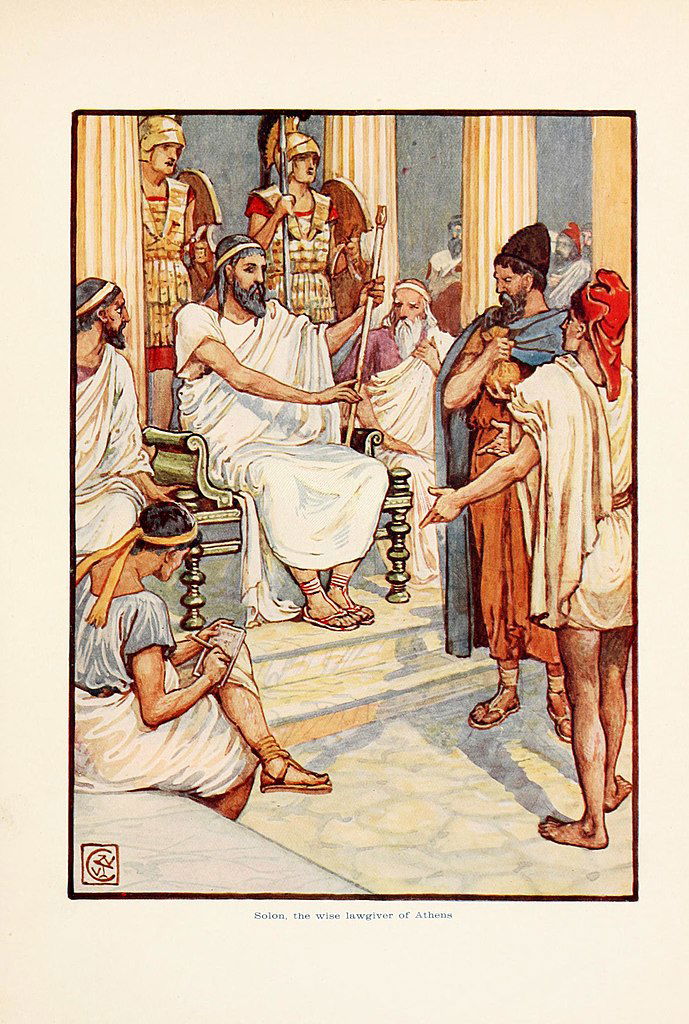
The Sons of Croesus
Croesus had two sons – one was “ruined, for he was mute”, and the other was name Atys and was supposedly superior to all of his peers.
After Solon left, Croesus had a dream in which he saw his son Atys killed after being struck with an iron spear.
Frightened, he orders that his son be protected at all times and not be sent out on any battles or royal missions. He also quickly has him married so that in case the prophecy comes true, the chances of him having grandchildren are higher.
Later, a request is received by Croesus from a neighboring city that a “great monster of a boar” has appeared in their city and they have been unable to fight it off.
“O King, a great monster of a boar has appeared in the land, who is destroying our fields; for all our attempts, we cannot kill him; so now we ask you to send your son and chosen young men and dogs with us, so that we may drive him out of the country.”
Croesus remembered the prophecy of his dream and answered them: “Do not mention my son again. I will not send him with you. He is newly married, and that is his present concern. But I will send the strongest Lydians, and all the huntsmen, and I will tell those who go to be as eager as possible to help you to drive the beast out of the country.”
The messengers of the neighboring city were satisfied by this, but Atys, the son of Croesus, was not.
“Father, it is very fine and noble for us to go to war and win renown. You have prevented me from going to battle and being glorious because of your dream, although you have seen neither cowardice nor lack of spirit in me. With what face can I now show myself when I go to the market? What will the men of the city think of me, and what my newly wedded wife? With what kind of man will she think that she lives? So either let me go to the hunt, or show me by reasoning that what you are doing is best for me.”
“My son,” answered Croesus, “I do this not because you are a coward or have anything wrong with you, but a dream told me that you would be killed soon by an iron spear. This is why I had you married and do not send you on any missions, but always keep guard over you, so that I don’t lose you. You are my only son: for that other, since he is ruined, he doesn’t exist for me.”
“Father,” the youth replied, “No one can blame you for keeping guard over me when you have seen such a vision, but you said I will die by an iron spear. Had the dream said I should be killed by a tusk or something a boar has, you would be right stopping me. A boar has no hands and no spear, so let me go.”
The king was convinced but sent along a friend to watch over his son just in case.

During the hunt, the men surrounded the boar in a circle and threw spears at it. The friend whom the king had sent to guard his son Atys accidentally missed the boar and hit Atys with his spear.
Atys died on the spot and the prophecy was fulfilled.
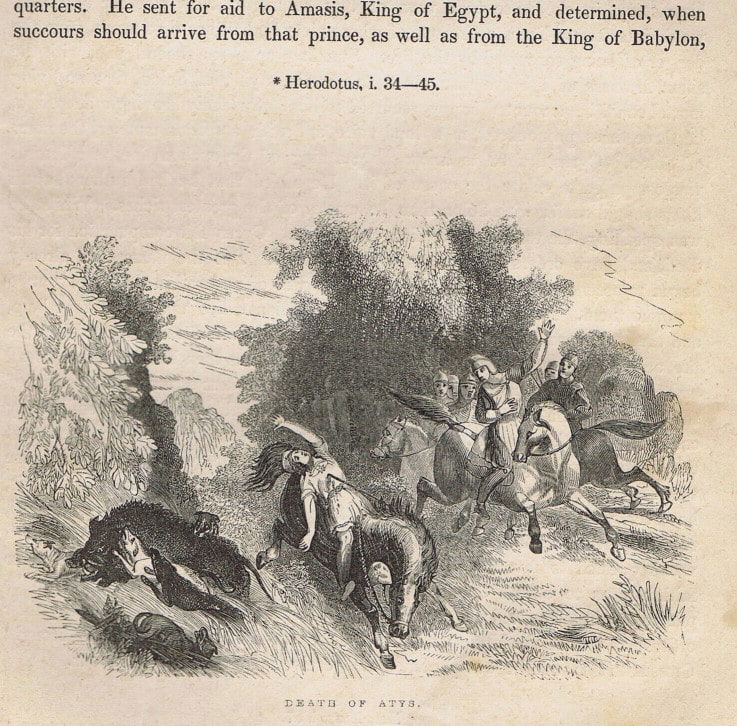
War Against The Persians
After the loss of his son, Croesus remained in deep sorrow for two years.
Croesus then wants to make war against the Persians and goes to the Oracle at Delphi (a temple of the god Apollo and the priests are supposed to be able to directly talk to the God – yes it was an actual thing).
The oracle tells him that if he should send an army against the Persians, “he would destroy a great empire”.
Before he went to war, a wise citizen of Lydia advised Croesus:
“O King, you are getting ready to march against men who wear trousers of leather and whose complete wardrobe is of leather, and who eat not what they like but what they have; for their land is stony. Further, they do not use wine, but drink water, have no figs to eat, or anything else that is good. Now if you conquer them, of what will you deprive them, since they have nothing? But if on the other hand you are conquered, then look how many good things you will lose; for once they have tasted of our blessings they will cling so tightly to them that nothing will pry them away.”
This did not convince Croesus because he thought he would win because the oracle had told him that he would destroy a great empire.
As it turned out, they had a battle with the Persian army led by the Persian King Cyrus – and the Lydian army under King Croesus lost.
Croesus had indeed destroyed a great empire – his own.
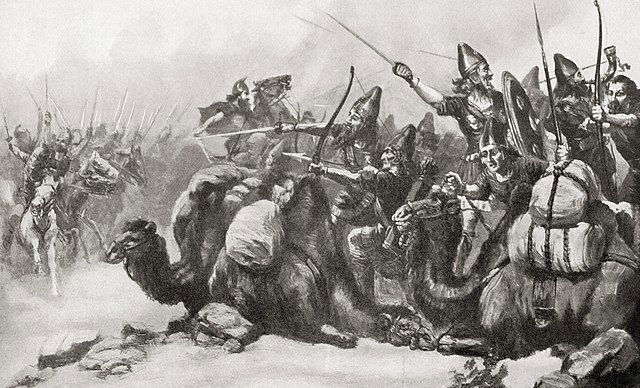
The Fate of Croesus
The Persians took Croesus prisoner. He was to be burned alive.
As he sat on the pyre tied up in front of Cyrus, he screamed “O Solon! O Solon! O Solon!”
Cyrus, then, astonished at this, sent men to ask him what man or god this Solon was on whom he called on his deathbed.
Croesus replied: “This man was one of the sages of Greece, and I met him, not with any desire to learn from him what I needed to learn, but to impress him the happiness and wealth I then enjoyed so that he may tell his countrymen about me. I derive more pain from the loss of my happiness and wealth than the pleasure I got from having it. For when it was mine, the good I got was simply people’s praises, but losing it has put me in terrible irreparable sufferings which are real. And that man saw what was in my future and told me to look to the end of my life, and not become proud and insolent.”
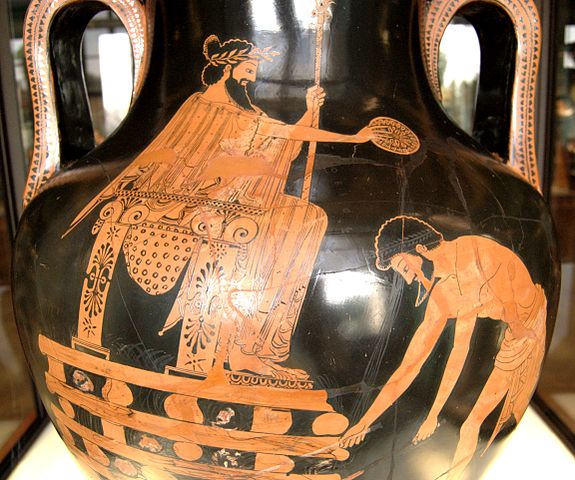
Cyrus was a wiser man than Croesus and understood the message of Solon immediately.
He knew that as a king he might one day meet the same fate, and that he was burning alive a man who was his equal in good fortune.
He ordered that Croesus be released as an example to all his countrymen of the lesson of Solon.
Our story ends here.
The Big Takeaways
There’s a lot to be taken from this ancient story. Some lessons that stand out are:
- Human happiness isn’t dependent on having lots of money. You only need to have enough money to provide for yourself so you do not need to lower your morale and status by having to beg, borrow, or steal.
- Nothing in life is ever guaranteed as long as you are still alive. You should enjoy what you have while being detached from it because everything can be taken away in an instant.
- To think someone is fortunate while they are still alive is like giving an athlete a medal while before the race is over. It is a premature judgement. The grass is always greener on the other side.
- The greatest source of happiness in this world is to have good and noble children and survive long enough to see your children have their own thriving children. (Tellus of Athens had this good fortune, while Croesus lived to see his son die.)
- It is good fortune to be from a prosperous city and to be able to do things that earn the respect of your countrymen. Dulce et decorum est pro patria mori – It is sweet and proper to die for one’s country.
- A man’s pride is in his strength and honors. A woman’s pride is in having borne children worthy of honors.
- You can’t outrun your fate, like Croesus couldn’t save his son. But that doesn’t mean that you shouldn’t try.
- Half knowledge is dangerous. Croesus was told that he would destroy a great kingdom by going to war with Persia. He didn’t understand that the gods were talking about his kingdom, not that of the Persians.
- Don’t make wars where you have a lot more to lose than the other side (see the advice of the wise citizen of Lydia to Croesus).
Wow that was a long one. You now have the lesson of Solon.
That’s all for today.
Until next time.
Your man,
Harsh Strongman

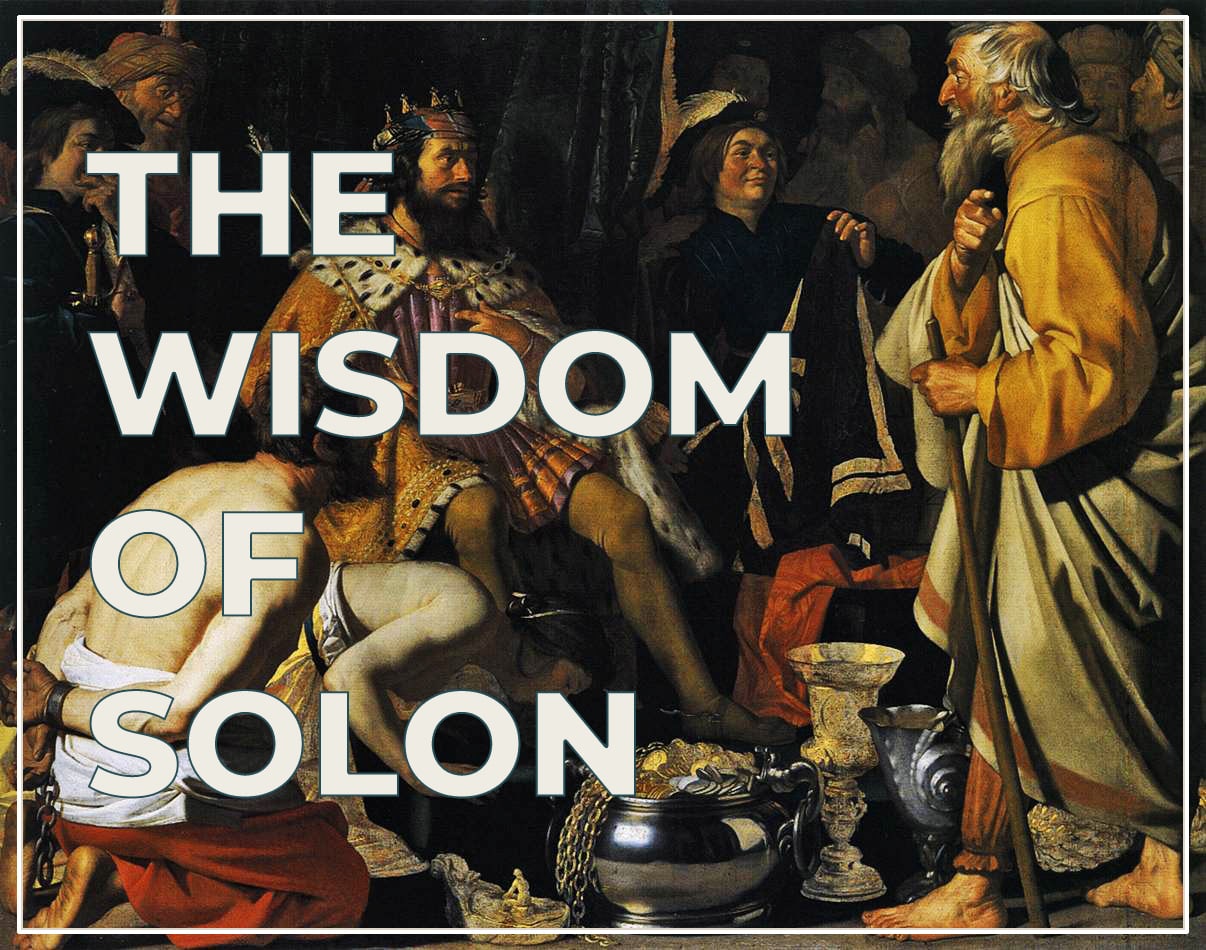
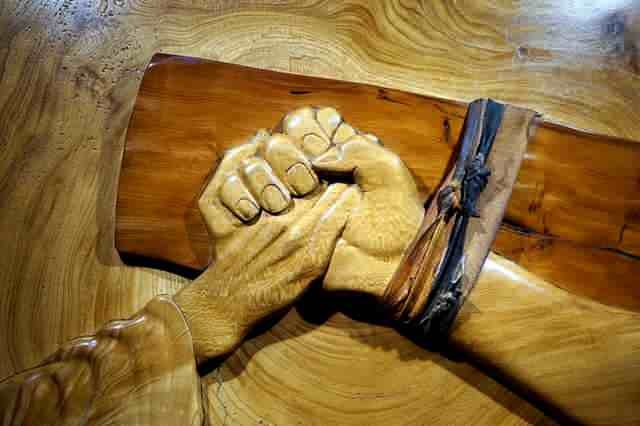







![Traits Women Find Attractive Traits Women Find Attractive (And How to Score Yourself) [PART 1: Physical Aspects]](https://lifemathmoney.b-cdn.net/wp-content/uploads/2025/11/Traits-Women-Find-Attractive-1.jpg)



































